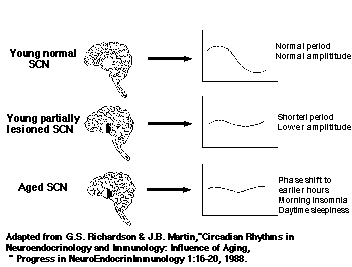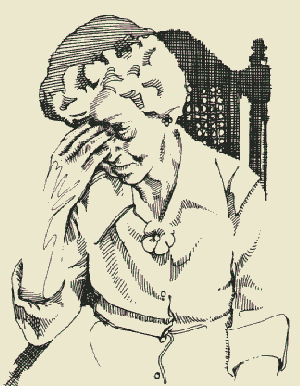
Any earlier changes in the SCN before age 80 are not yet understood.


Why do the elderly have problems sleeping? The reasons can include medications, physical problems, their social setting, and psychological conditions. In studies of healthy old people, scientists have shown that some circadian rhythms themselves seem to be disrupted by age. For example, the amplitudes of the body temperature and melatonin production rhythms decrease with age, and the insulin production increases. In addition, the internal desynchronization of a number of rhythms increases as we age [12].
Why are circadian rhythms disrupted in the elderly? One possible reason is that humans over 80 years old tend to have fewer
SCN neurons and a smaller SCN[3].
Any earlier changes in the SCN before age 80 are not yet understood.
An alternative to sedative medications--which can be useless if not dangerous to older people[11]--has recently been tried with some success.there other options? A rather recent and unconventional method of helping the elderly has been tried with some success. Healthy elderly patients were given a timed exposure (from 2-4 hrs.) to bright light in the evening, resulting in improved sleep patterns--less wakefulness in the night and a phase delay of several hours (see review by 11), but these short-term studies are still preliminary. (Note that the therapeutic use of light on the human circadian system is still experimental, and bright light sources used inappropriately can damage the retina.)